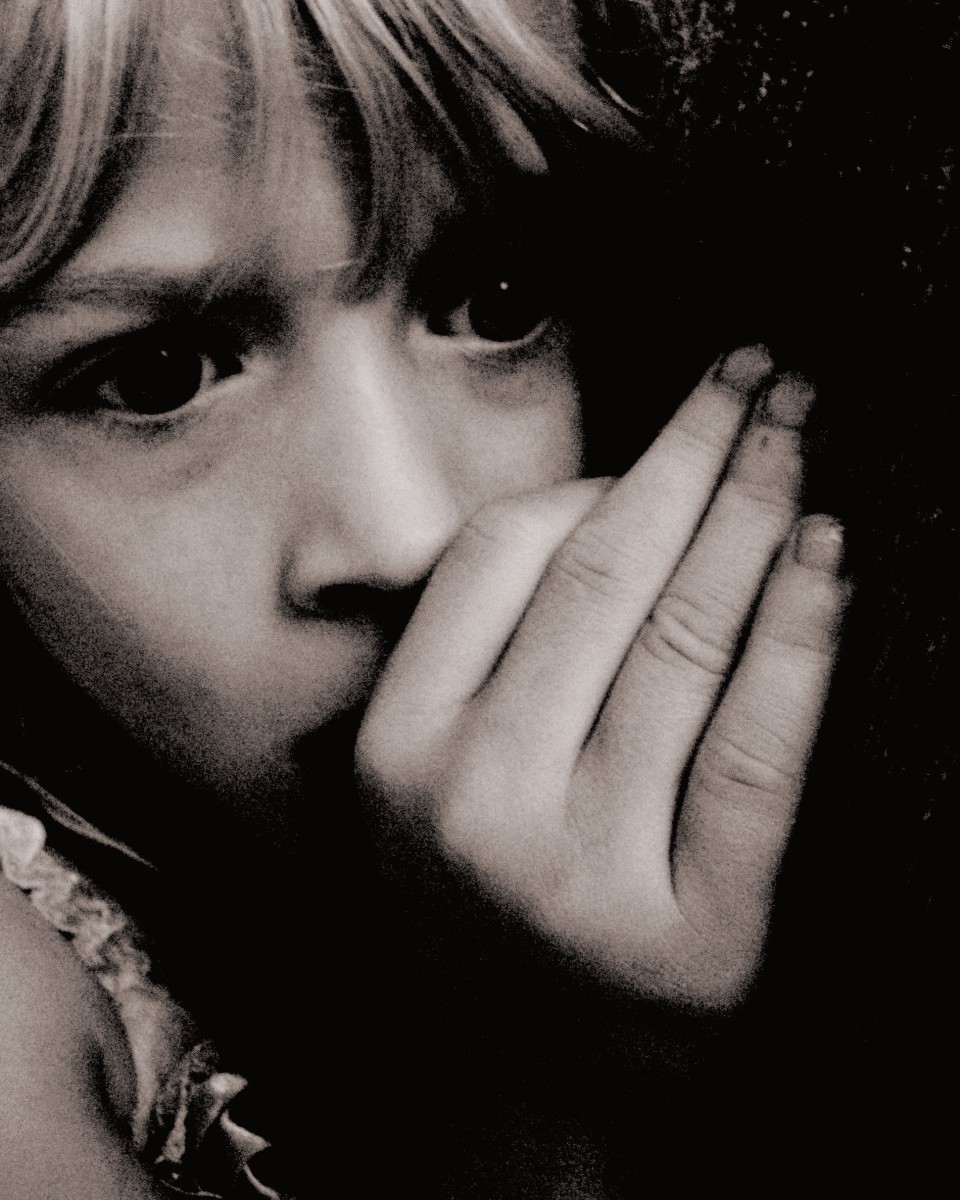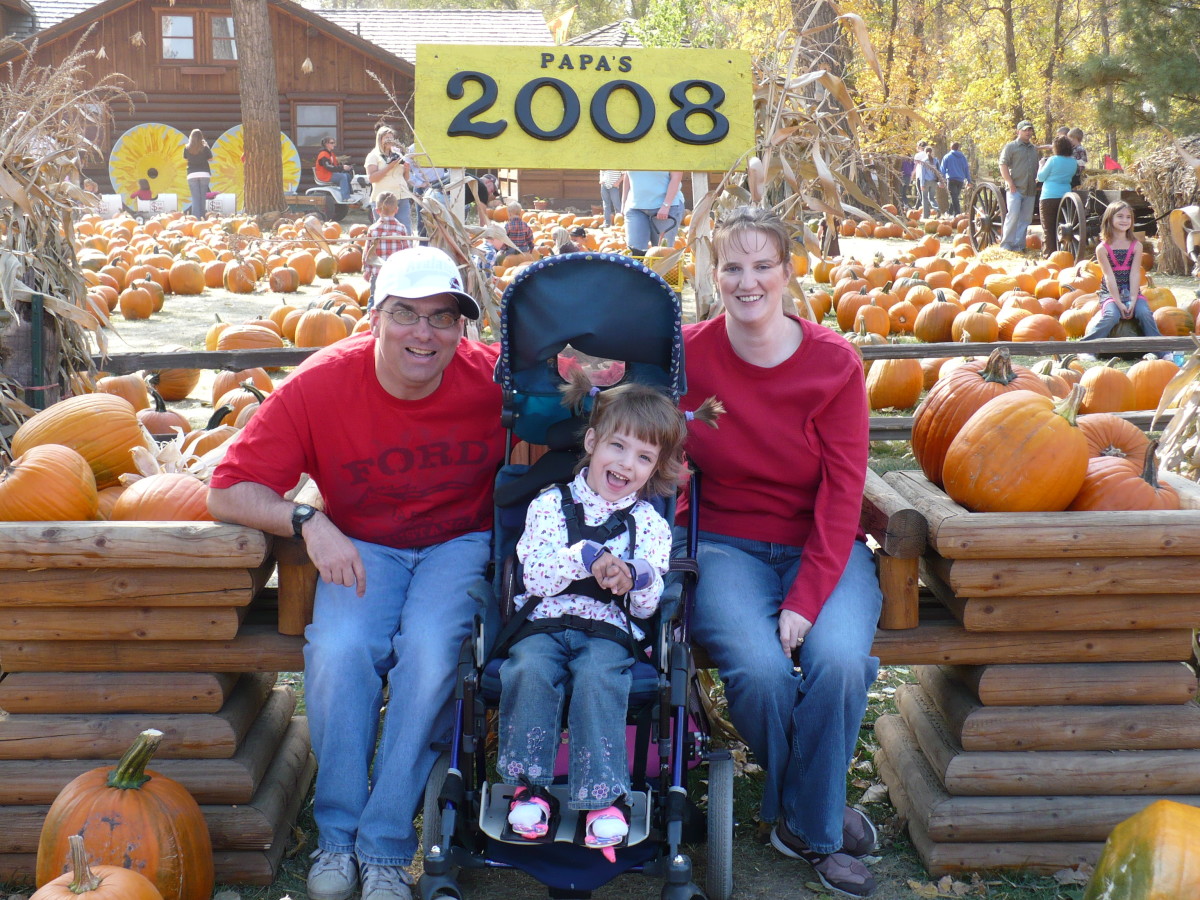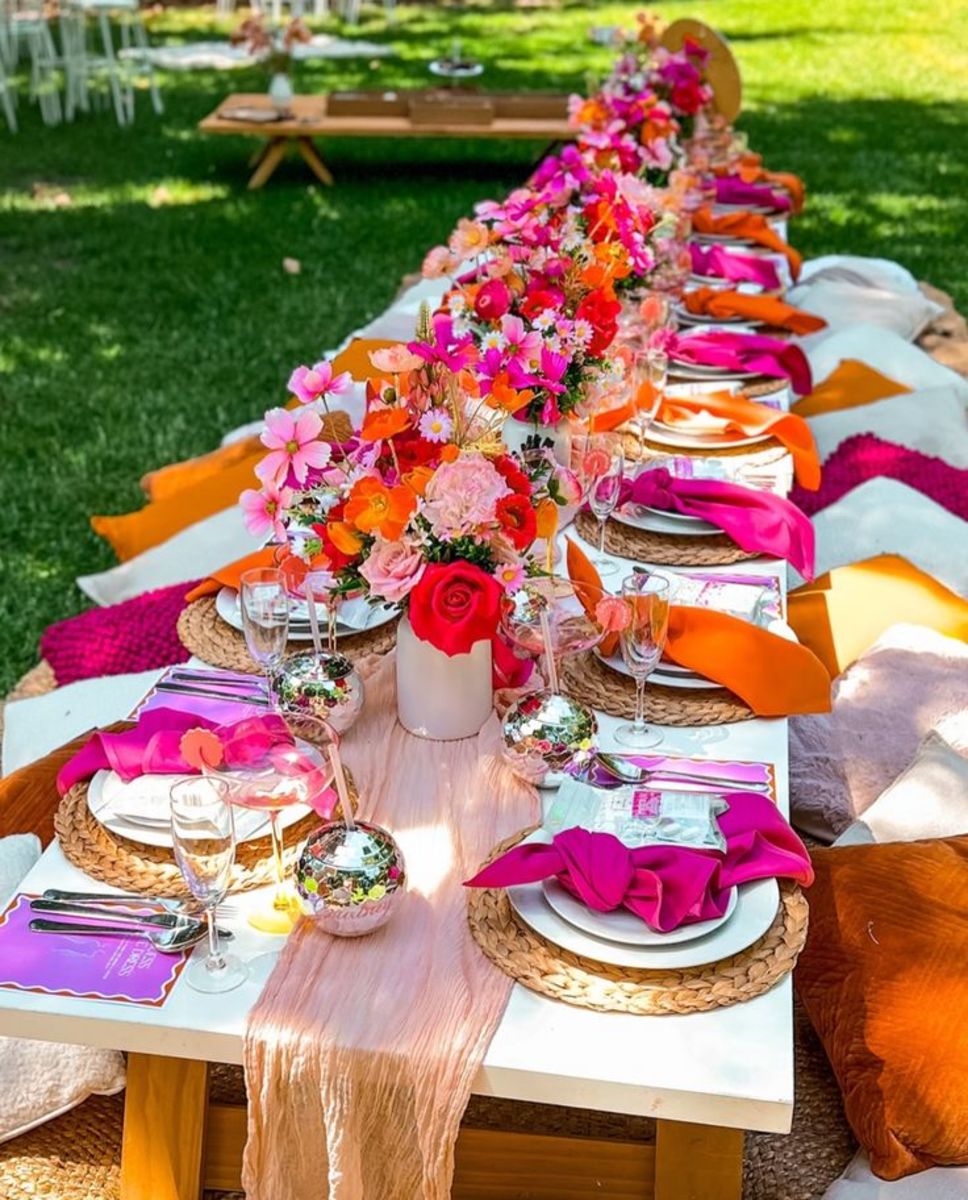Having A Second Baby, or Third or Forth...
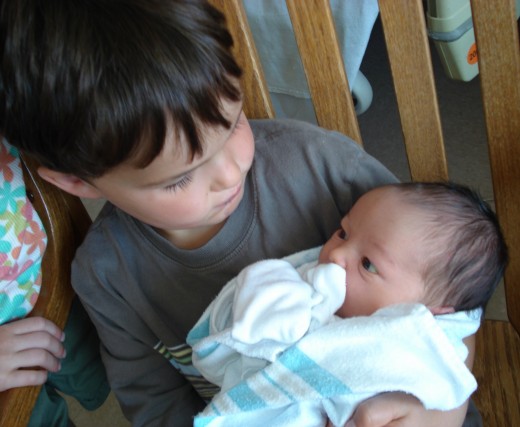
Having a child is a huge undertaking, and the idea of having another child is something you will likely consider and reconsider many times before being sure.
If you are reading this you probably already have one child or two or maybe even more and are considering having another. This is a really tough choice to make with so many considerations to weigh in.
If you already have a safe place to raise your children and new baby, and you are in a stable relationship and can reasonably afford to raise another child, lets look at some considerations.
- Agreement - Both Parents need to agree to have another child.
- Health - The mother is in good physical condition to carry and care for the child.
- Other Children - Do any of the older children have special needs that would make it difficult to provide the new baby with enough love and care?
- Spacing - There is no ideal spacing, but having children less than 2 years apart is more difficult since the physical needs of the older child are still very high.
- Passion for parenting - Does the mother passionately want this baby enough to add to the demands put on her?
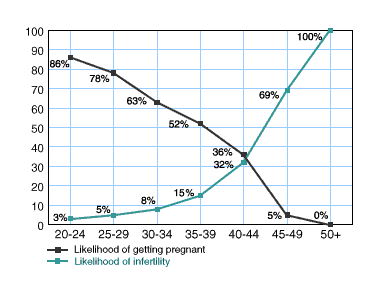
- Fertility - If you are planning on having more children, fertility should be factored in. A women's body is at peak fertility in her early 20's, with a 20-25% chance of getting pregnant. There is a stark decline every year after that. A woman who is pregnant at age 35 and over is considered high risk in part because the incidence of birth defects and miscarriage greatly increases. At the age of 40 a woman's chance of getting pregnant is only approximately 5%. These numbers are a shock to many women, since there is societal pressure to pursue career goals first and family goals second. This leaves many women frustrated at having pursued their career and finding themselves infertile when they are ready to have have children. (see chart above)
- The dream of a large brood - Do the parents have a dream of a larger family and are willing to make sacrifices to do so? Having more children might mean fewer extras like vacations, violin lessons and eating out, but many large families care most about the family and those precious interactions between one another, feeling ‘the more the merrier’.
Larger Families
- A larger family means more opportunities for kids to socialize. Children from larger families tend to be more socially advanced than their smaller family counterparts. With live-in playmates the children of larger families have more natural opportunities to socialize than the kids from smaller families
- Traveling with a larger family may include the expense of many airplane tickets and sometimes a second hotel room, this can be a deterrent to larger families to taking as many vacations or any.
- With so many activities to drive to, the parent of a larger family may need to limit individual extracurricular activities.
- The expense of paying for activities can be decreased by choosing less expensive activities. While karate and ice hockey tend to be very expensive, soccer and baseball are more readily affordable. (see spending chart below)
Smaller Families
- Families with fewer children may be able to devote a larger amount of time to each child.
- Can more likely afford extras such as lessons, activities and vacations. They may also find it easier to save for college.
- Studies show that only children tend to be more successful in their chosen careers, however this can be true of first born children as well.
- With a quieter home life children of smaller families may plan more play dates and get involved with more activities.
How many kids do you have?
1 kid - high achiever
2 kids - the norm
3 kids - a charm
4 kids - 4 times the fun four times the love
5 kids - mini van max
TLC Life Essentials - Costs of Having a Baby
While the cost of having a child is still expensive many people feel it is the best investment they have ever made.
Family Size Statistics
The average family size remains at 2.5 kids, but yearly birth rates ebb and flow. One logical cause of a decrease in birth rates in a slowing economy. John Hopkin's Sociology professor Andrew Cherlin observes "When the economy is bad and people are uncomfortable about their financial future, they tend to postpone having children. We saw that in the Great Depression in the 1930s and we're seeing that in the Great Recession today,"
There was a peak in birth rates in 2007 with clusters of couples choosing to have larger families, these clusters were mostly made up of higher educated, wealthier families, this trend has likely faded. According to the National Center for Health Statistics
"the number of births in the United States reached an all-time high of 4,316,233 in 2007, but that number has since fallen. From 2007 through 2009, births fell 4 percent to 4,131,019; and the provisional count of births through June 2010 indicated continued declines."
The birth rate is now at it's lowest level in more than a century. With the down turn in the economy some couples are postponing both starting and adding to their family while others feel they can't wait. One mother states "We just recently decided that it's time to stop waiting and just go for it....let the chips fall where they may," she said. "We can't allow the recession to dictate the size of our family. We just need to move forward with our lives."
What kids mostly need is consistent love and a save environment, the extras are just that 'extras'
Larger Families Can Make it Work
There is a great deal of flexibility regarding expenses with children as there are so many ways parents can control what they spend.
Flexibility in Child Expenses
Spend More
| Spend Less
| Free
| |
|---|---|---|---|
Lessons & Activities
| karate, ice hockey, music lessons, dance lessons
| soccer, baseball, dance lessons without recitals
| bike riding, visit a playground, hiking
|
Clothes
| designer clothes
| discount shopping
| hand me downs
|
Feeding Baby
| formula, jared food
| breastfeed, use food mill for baby food
| -----
|
Food
| eating out, prepared food
| cooking from home
| no free ride here
|
Vacations
| travel by air
| road trip
| staycation
|
Child Care
| nanny/day care
| stay at home parent
| relative cares for child
|
Education
| private school
| homeschool
| public school
|
College
| private university
| state college
| scholarships
|
Listen to Your Heart
In the end a Mother needs to listen to her heart and ask herself if this is truly what she wants and can do well.
My Story
This article is inspired by my indecision about having my fourth child. At the time that I was considering having a fourth child, I asked friends and researched the topic, but no one could give me an answer and of course a lot of people are against the notion of large families. I realize that the choice was clearly mine to make, but what I was seeking was help in sorting out what I really wanted. Maybe even though I knew I wanted a fourth child, I simply doubted myself.
In the end, I listened to my heart and went for it and had the most wonderful baby boy. I call him my golden child, since in a family of all brown hair; his hair was nearly blond (it is now getting darker). He is the perfect addition to our family and is the most joyous loving child. The interactions between him and the other children are precious and I have no doubt that I made the right choice. I felt very strongly about having this child but I am sure that I don’t want to have any more. I feel that women have ‘a number’, it seems as though it is set from birth as to how many kids they will have and four was my number. I hope this article helps you find what your number is and in some way, be a guide to making your dream family come true.
© 2011 Tracy Lynn Conway




